Last Updated on April 17, 2025 by Ewen Finser
If you have been trying to turn a messy influencer marketing strategy into a more organized plan, you have probably come across Upfluence. This influencer marketing platform is great for a lot of things, from managing influencer communication to tracking results. However, if you need something different (maybe more affordable or more specific) there are a lot of options worth trying.
What to Look for in an Influencer Marketing Platform
Before we dive in, I want to talk about what makes a great influencer marketing platform. Not all influencer marketing platforms do the same thing. Some are great for finding influencers, while others focus on campaign management, analytics, or even Amazon-specific features. Here’s what to consider when choosing the right one for your brand.
1. Influencer Discovery
Great influencer marketing campaign starts with finding the right creators. The best platforms use AI-powered search tools that let you filter influencers based on engagement rate, audience demographics, follower count, niche, and content style.
For example, if you sell fitness products, you’ll want influencers who already create high-performing health and wellness content—not just someone with a big following. Some platforms also offer fake follower detection, which helps make sure that the influencers you work with have real, engaged audiences rather than inflated numbers.

2. Campaign Management Tools
Finding influencers is just the beginning. Managing influencer relationships, contracts, and content approvals can be overwhelming—especially when working with multiple creators at once.
The best influencer marketing platforms include automated campaign management tools that handle:
- Contract creation and approval so you can have clear terms for both brands and influencers.
- Automated influencer outreach to help you scale your campaigns.
- Content tracking and approvals, so you can review posts before they go live.
3. Performance Analytics
A good influencer marketing platform doesn’t just connect you with influencers: it also shows you if it was even worth it. The best tools provide real-time data on engagement, conversions, and ROI, so you can track the impact of every influencer post.
4. Amazon-Specific Features
If you sell on Amazon, look for platforms that track Amazon-attributed sales and offer Amazon-friendly integrations. Some even provide trackable links that help influencers promote your Amazon listings.
Now that you know what to look for, let’s break down the best Upfluence alternatives.
The Best Upfluence Alternatives
Upfluence is great for finding influencers, but it has some limitations—especially if you sell on Amazon. Here are some top alternatives to consider.
1. Aspire (formerly AspireIQ) – Best for Community-Driven Brands
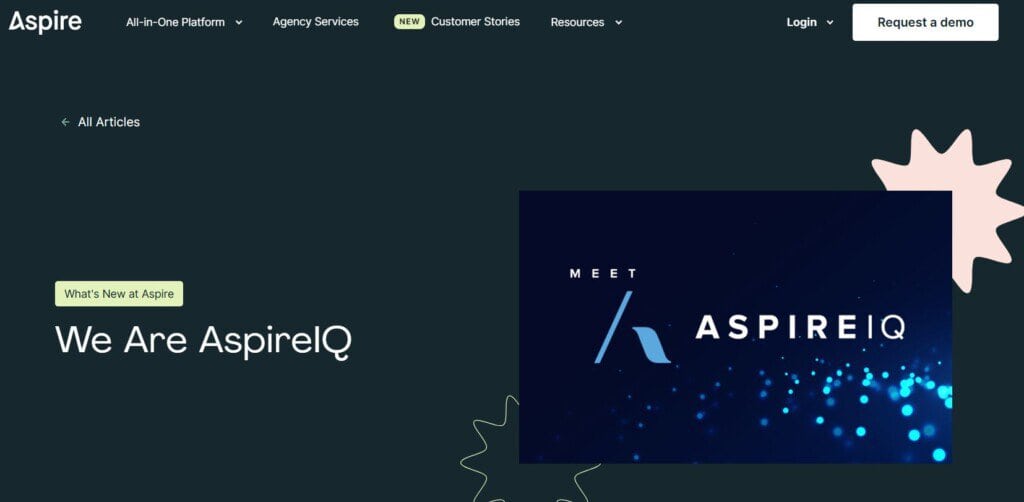
Aspire (formerly AspireIQ) is more than just an influencer marketing tool. It helps you turn your customers into influencers and build a loyal, engaged community.
One of the cool things about Aspire is its customer-to-creator conversion feature. It finds your most loyal, engaged customers and turns them into brand ambassadors. So instead of just working with influencers, you’re turning your real customers into your biggest advocates.
Aspire also has automated tools for managing campaigns, so you can easily handle outreach, content approval, and performance tracking. Plus, you can track affiliate sales to pay influencers based on actual sales.
Why it’s a great Upfluence alternative: If you want to build a brand ambassador program rather than just paying influencers for one-off posts, Aspire is a better choice than Upfluence.
2. Grin – Best for DTC and eCommerce Brands
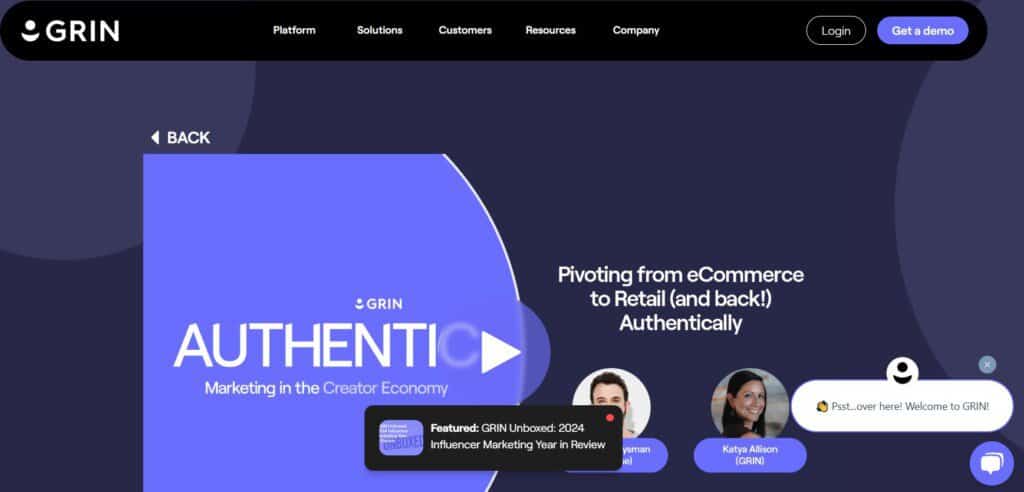
Grin is perfect if you want to build lasting relationships with influencers. It’s not just about finding influencers—it’s all about managing and nurturing those relationships over time.
One of the best things about Grin is its CRM. It lets you track all your past work with influencers, keep tabs on your conversations, and turn influencers into long-term brand ambassadors instead of just paying for one-off posts.
It also integrates with platforms like Shopify, Amazon, and BigCommerce, so you can easily see how much sales are coming from each influencer. You can even set up affiliate programs where influencers earn a commission on the sales they bring in.
If you’re looking to build solid, long-term partnerships and track influencer performance, Grin’s a great fit.
Why it’s a great Upfluence alternative: While Upfluence focuses on influencer discovery, Grin prioritizes relationship management. If you’re looking for a CRM-style tool to build long-term partnerships, this is a great pick.
3. Heepsy – Best for Small to Mid-Sized Brands
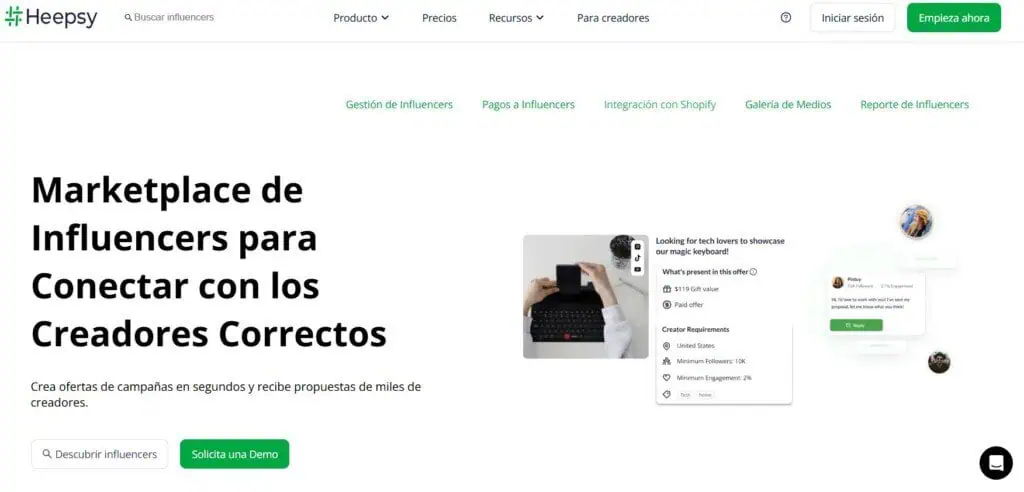
Starting with influencer marketing but don’t want to break the bank? Heepsy’s a great choice. It’s affordable and perfect for finding the right influencers for your brand.
Heepsy has great search filters to help you find influencers based on things like niche, location, engagement, and audience type. It even helps you spot fake followers so you don’t waste money on influencers with fake followers.
The catch? Heepsy doesn’t have campaign management tools, so you’ll need to handle the outreach, negotiations, and tracking yourself. It’s best for smaller brands that just need an easy, affordable way to find influencers.
Why it’s a great Upfluence alternative: If Upfluence feels too complex or expensive, Heepsy offers a more straightforward solution.
4. Traackr – Best for Enterprise Brands
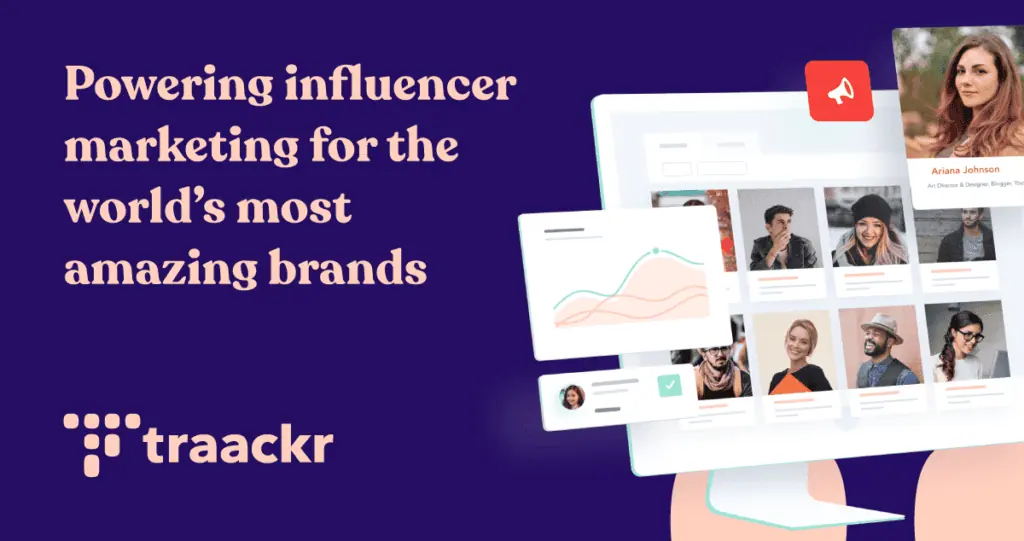
Traackr is made for large brands that need to manage influencer campaigns at scale. If you’re working with hundreds of influencers in multiple countries, this platform is perfect.
It has one of the largest global databases of influencers, covering over 100 countries. You also get super detailed analytics to track how each influencer is performing.
But this is not it: if you have a big influencer marketing budget, Traackr helps you spend it wisely by tracking what’s working and automatically shifting your budget to the influencers who are delivering the best results.
Why it’s a great Upfluence alternative: While Upfluence works well for mid-sized brands, Traackr is built for massive influencer campaigns at scale.
5. Levanta – Best for Amazon Sellers
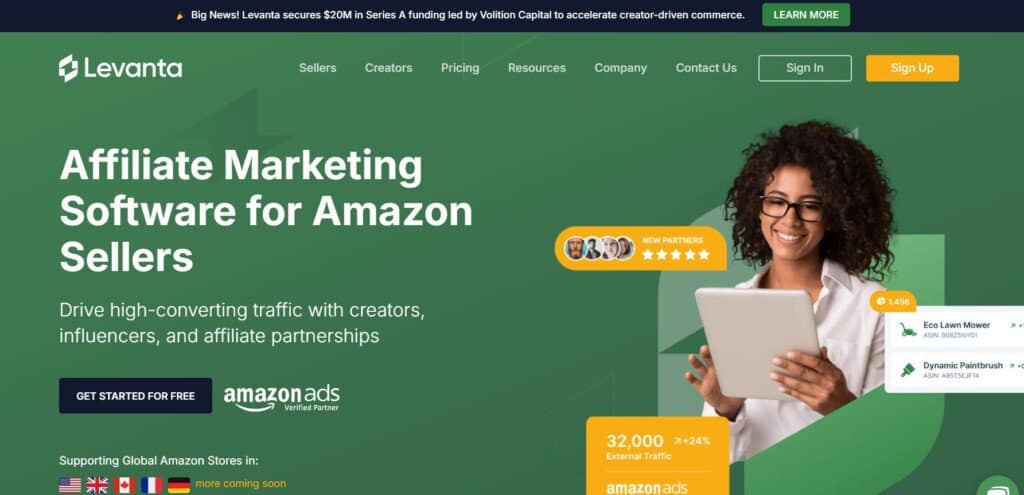
Levanta is influencer marketing made for Amazon sellers. This platform is designed to help anyone who is trying to grow an ecommerce business on this popular platform work with influencers to get more sales.
What’s awesome about Levanta? It tracks exactly how much revenue comes from each influencer campaign. This is huge because many other platforms don’t track Amazon sales directly, so they leave a lot of data out.
It also handles influencer gifting, so if you want to send free products, Levanta takes care of everything, from shipping to tracking.
Lastly, Levanta is performance-based: influencers only get paid when they actually make sales. This is a good option for those small brands who don’t have a huge budget to pay influencers upfront and want to engage in a more flexible collaboration:
Why it’s a great Upfluence alternative: Unlike Upfluence, which is more of a general influencer marketing tool, Levanta is designed specifically for eCommerce brands that sell directly on Amazon (it’s literally designed especially for Amazon brands).
If you sell on Amazon, Levanta will help you make the most out of your influencer strategy across multiple channels.
Should You Get An Influencer Marketing Platform?
Influencer marketing platforms can make your life easier, but they’re not always necessary. Here’s when it’s a good idea to use one, and when you might not need it.
Use an Influencer Marketing Platform if:
- You’re working with lots of influencers: Managing multiple influencers can get tricky. A platform helps you keep track of everything in one place, saving time and keeping things organized.
- You want more data: If you want to track how well your campaigns are doing, a platform gives you data to measure things like engagement, clicks, and sales.
- You’re in eCommerce: If you’re running an online store or using Amazon, a platform can help link influencer efforts directly to sales, making it easier to see the impact on your bottom line.
- You’re running big campaigns: If you’re working with a lot of influencers at once, a platform can help automate tasks like outreach and scheduling, saving you from getting overwhelmed.
Maybe wait to get an influencer marketing platform if:
- You only work with a few influencers: If you’re just managing a couple of partnerships, you might not need a platform to keep things organized.
- You prefer to build relationships directly: If you like connecting with influencers personally and prefer doing things the old-fashioned way, a platform might feel too impersonal.
- You’re on a tight budget: Platforms can be expensive. If your budget’s limited, you might want to keep things simple and manage campaigns manually.
The right influencer marketing platform for you depends on your specific needs, whether that’s budget, ease of use, or specialized features. As influencer marketing continues to grow, having the right tools in place can make all the difference in creating effective, scalable campaigns.
The good news? You can experiment with a few alternatives, and see which one fits your style and goals best.

